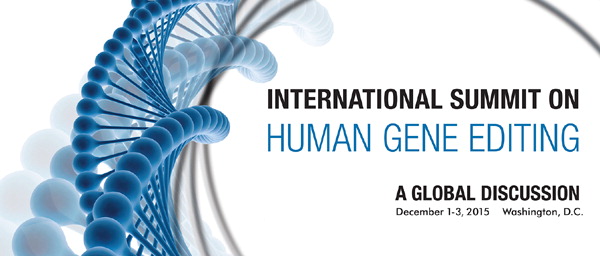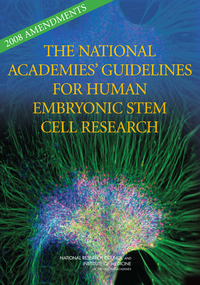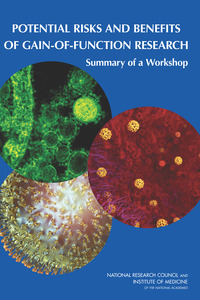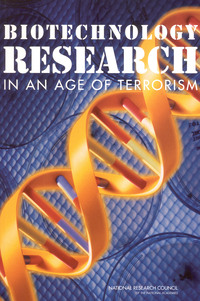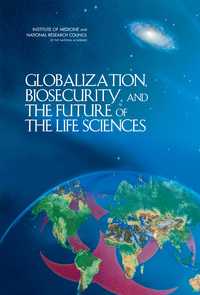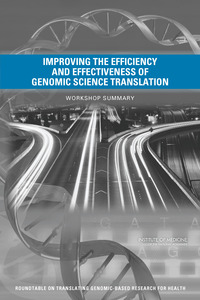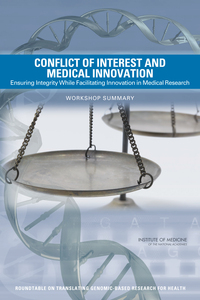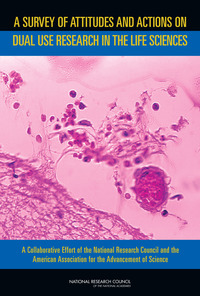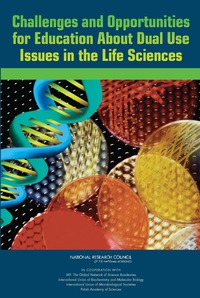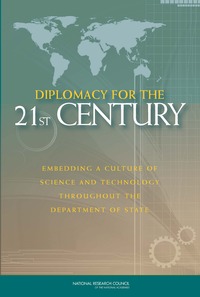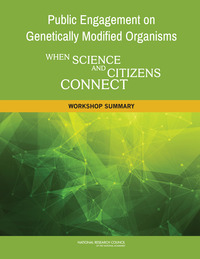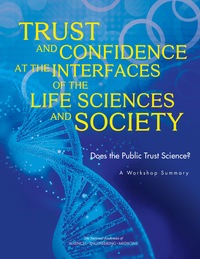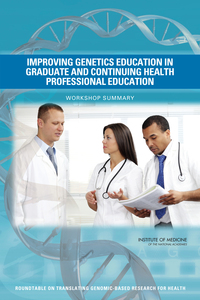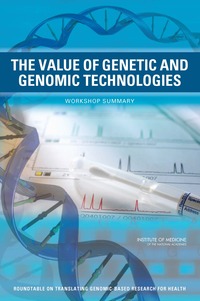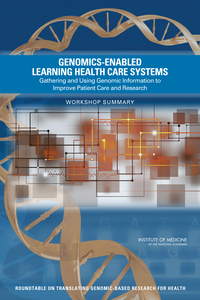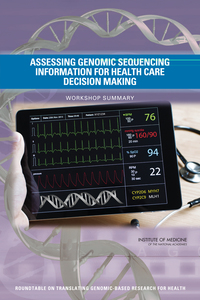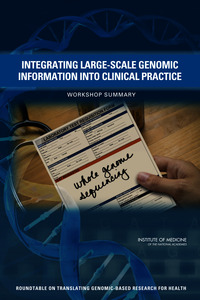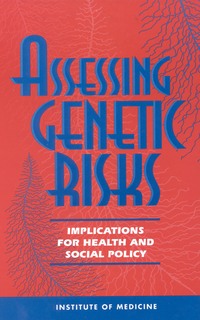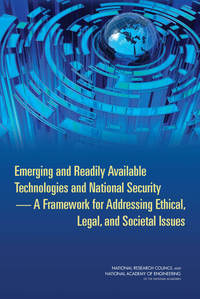
Fundamental, emerging, and applied life science and biotechnology research are critical to the bioeconomy, science, health, agriculture, energy, the environment, and national security and defense. The biotechnology economy is growing rapidly, with the scale, scope, and complexity of products increasing. Our titles address critical, emerging policy and technical issues associated with the life sciences and biotechnology research and their applications.

Biological physics, or the physics of living systems, has emerged fully as a field of physics, alongside more traditional fields of astrophysics and cosmology, atomic, molecular and optical physics, condensed matter physics, nuclear physics, particle physics, and plasma physics. This new field brings the physicist’s style of inquiry to bear on …[more]

Heritable Human Genome Editing
Heritable human genome editing – making changes to the genetic material of eggs, sperm, or any cells that lead to their development, including the cells of early embryos, and establishing a pregnancy – raises not only scientific and medical considerations but also a host of ethical, moral, and societal issues. Human embryos whose genomes have …[more]

Research and innovation in the life sciences is driving rapid growth in agriculture, biomedical science, information science and computing, energy, and other sectors of the U.S. economy. This economic activity, conceptually referred to as the bioeconomy, presents many opportunities to create jobs, improve the quality of life, and continue to …[more]

Forest Health and Biotechnology: Possibilities and Considerations
The American chestnut, whitebark pine, and several species of ash in the eastern United States are just a few of the North American tree species that have been functionally lost or are in jeopardy of being lost due to outbreaks of pathogens and insect pests. New pressures in this century are putting even more trees at risk. Expanded human …[more]

Biodefense in the Age of Synthetic Biology
Scientific advances over the past several decades have accelerated the ability to engineer existing organisms and to potentially create novel ones not found in nature. Synthetic biology, which collectively refers to concepts, approaches, and tools that enable the modification or creation of biological organisms, is being pursued overwhelmingly …[more]

Human Genome Editing: Science, Ethics, and Governance
Genome editing is a powerful new tool for making precise alterations to an organism’s genetic material. Recent scientific advances have made genome editing more efficient, precise, and flexible than ever before. These advances have spurred an explosion of interest from around the globe in the possible ways in which genome editing can improve …[more]

Preparing for Future Products of Biotechnology
Between 1973 and 2016, the ways to manipulate DNA to endow new characteristics in an organism (that is, biotechnology) have advanced, enabling the development of products that were not previously possible. What will the likely future products of biotechnology be over the next 5–10 years? What scientific capabilities, tools, and/or expertise …[more]

Research on gene drive systems is rapidly advancing. Many proposed applications of gene drive research aim to solve environmental and public health challenges, including the reduction of poverty and the burden of vector-borne diseases, such as malaria and dengue, which disproportionately impact low and middle income countries. However, due to …[more]

Genetically Engineered Crops: Experiences and Prospects
Genetically engineered (GE) crops were first introduced commercially in the 1990s. After two decades of production, some groups and individuals remain critical of the technology based on their concerns about possible adverse effects on human health, the environment, and ethical considerations. At the same time, others are concerned that the …[more]










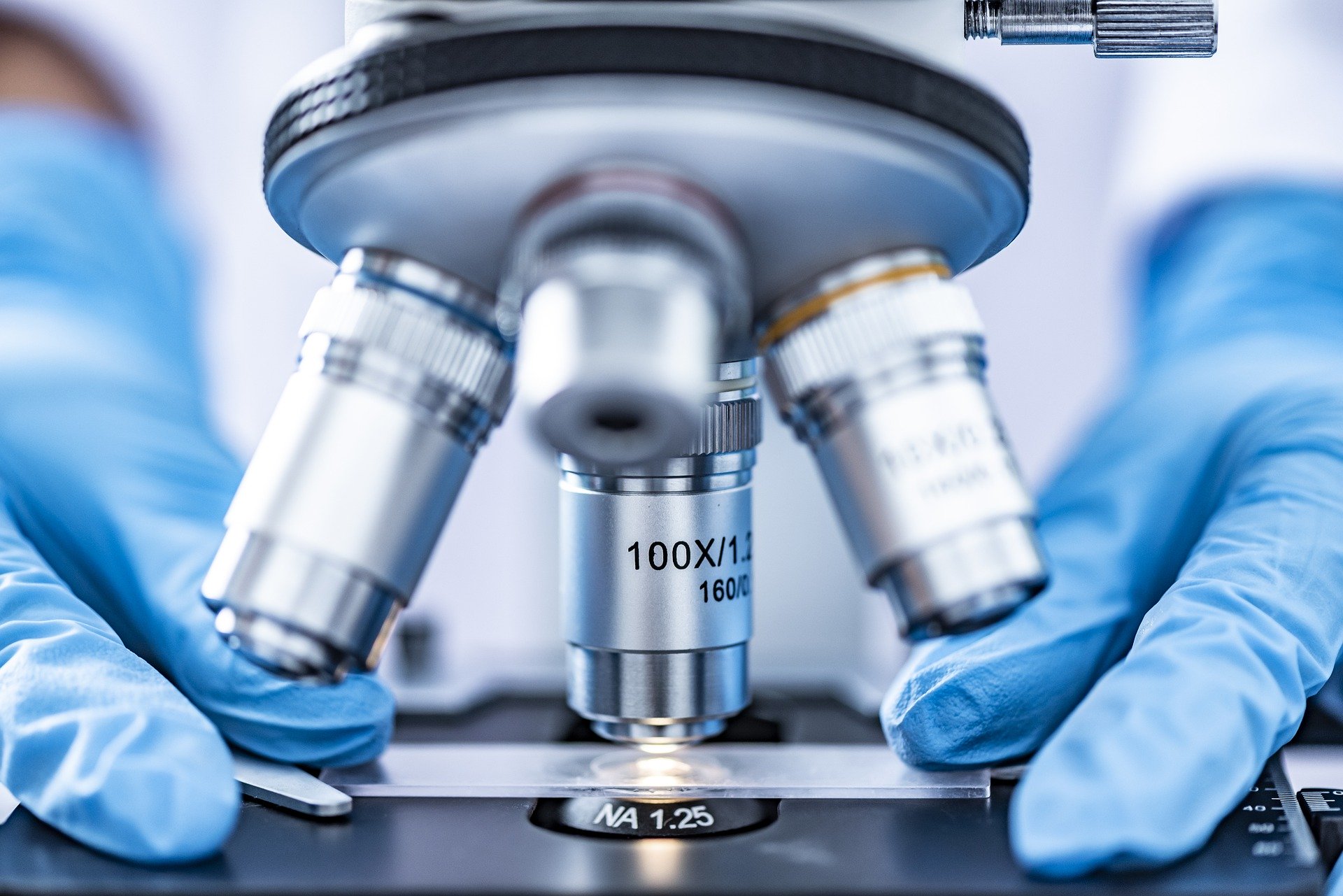





 In honor of National DNA Day, explore new technologies and treatments that have resulted from the sequencing of the human genome and their ethical, medical, and societal implications. As always, our publications are free to read online or download.
In honor of National DNA Day, explore new technologies and treatments that have resulted from the sequencing of the human genome and their ethical, medical, and societal implications. As always, our publications are free to read online or download.









